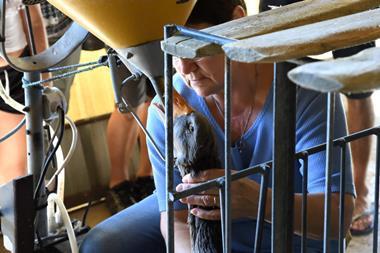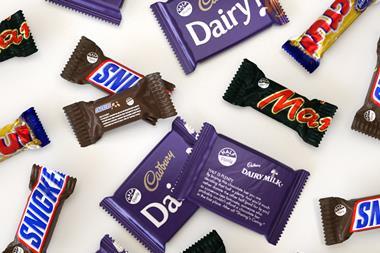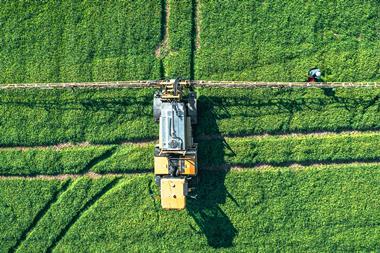![Guide to SMEs_Article image_long[3]](https://dmrqkbkq8el9i.cloudfront.net/Pictures/480xany/2/4/3/216243_guidetosmes_articleimage_long3_307021.jpg)
Are you a food business that had to adapt to stay afloat during Covid-19? You are not alone. Many food businesses have continued to thrive through the pandemic by diversifying their type of business, such as pivoting to home delivery and selling food online. While you can’t predict what the future brings (especially these days), making sure you do things correctly to keep everyone safe and your business compliant is a big win.
So in the latest of our Guide for SMEs series, we asked the Food Standards Agency (FSA) for some tips on how you can adapt and trade safely in the new normal.
“For many food businesses, coronavirus has marked a profound and lasting shift in how they operate. Since lockdown, food heroes across the country have worked hard to adapt to the changing situation and respond to the often unprecedented challenges arising from this pandemic,” says the Food Standards Agency’s head of regulatory compliance, Michael Jackson.
“We are proud that the food industry has risen to the challenge, finding innovative ways to connect with their customers, while maintaining good social distancing, food hygiene and food safety measures.
”If you have changed or adapted your business model, reading our guidance and acting accordingly will help you address the potential risks introduced by the ‘new normal’. We want to ultimately support you to protect your customers and build their confidence in your business.”
I am considering changing how I operate my food business due to the pandemic. What are the things I need to do to trade safely?
The first thing you need to do is let your local authority or council know that you have changed your business model, so they are aware.
Will I need to redo my paperwork?
Sometimes changing your business model can introduce additional food safety risks into your operations. You will need to review and, where necessary, update your HACCP-based Food Safety Management System (such as Safer food, better business). Also consider the impact of the changes. You should check that the changes you have made have not introduced any additional hazards and consider the impact of these changes to your usual hygiene and food safety practices.
How will this affect my staff?
You should make all staff aware of changes to your Food Safety Management Systems, and how this will affect them. Do make sure they receive the necessary training to enable them to manage the changed processes.
I’m planning on selling food online. What do I need to consider when it comes to providing allergen information?
If you are selling food online, don’t forget you must provide allergen information at the point of sale (for example on your website) and at the point of delivery (for example on the food container). This is a legal requirement and important to ensure your customers can make safe food choices.
I’ve changed my model to delivery and takeaway. What should I consider?
All food must be delivered to consumers safely, so it does not become unsafe or unfit to eat. Food that needs refrigerating must be kept cool while being transported. This may need to be packed in an insulated box with a coolant gel pack or in a cool bag. Equally, food that needs to be kept hot should be packed in an insulated bag.
Can I use my car to transport food?
If you use a domestic vehicle (or a non-food industry business vehicle) to transport your food orders, look on our website for the hygiene requirements and vehicle specifications that should be met.
I’m packing food up for delivery – any tips?
Select appropriate food-grade packaging that is designed, for example, for the transport of hot food, to make sure the transported food is safe and its quality is maintained. Think about how to prevent leaks, or to stop grease soaking through, so that contaminants or germs won’t transfer onto the food. Well-fitting lids or closures will also minimise any hygiene or spillage risks.
My usual supplier is having problems. What should I be looking for when sourcing a new supplier and products?
It’s so important to only purchase food from reputable suppliers. We are aware that the disruptive effect of Covid-19 has introduced risks of misrepresentation and illicit supply practices to meet demand. Be vigilant when faced with a deal that’s too good to be true. It usually is.
Also, if sourcing a substitute product to replace one you usually use, do not assume the ingredients are the same and make sure you check for any allergens you would need to take account of. You can report suspected food crime to the National Food Crime Unit. You can also report a business behaving unfairly, or profiteering, during Covid-19 to the Competition & Markets Authority.
For more on the practical steps on how to start a food business from home, visit the FSA’s Here to Help guidance.
Here to Help is a campaign from the Food Standards Agency which provides easy online access to practical information and resources to support food businesses. It features tailored guidance, case studies, industry insight and webinars to help food businesses get back and stay on their feet following the challenges of Covid-19. Support will continue across the summer and will react to the changing needs of food businesses.




















No comments yet